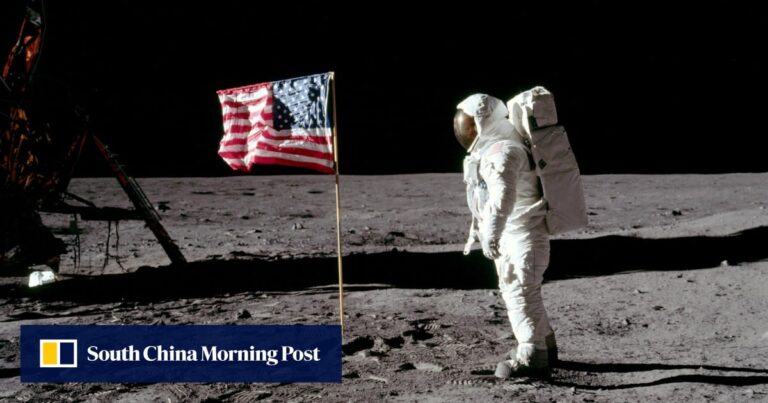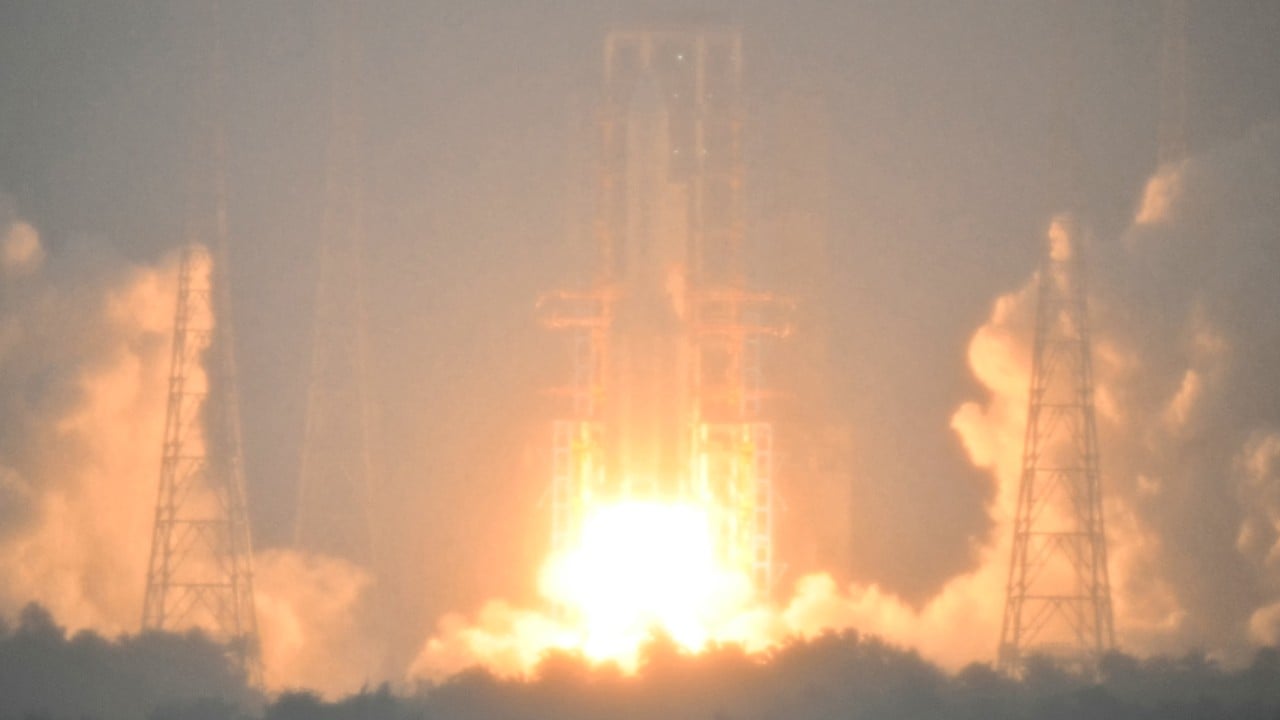“We haven’t found anything like that in the Apollo Basin,” Pei said.
The host noticed Pei was having trouble organizing his thoughts and quickly steered the conversation elsewhere.
However, many internet users linked the basin’s name to NASA’s Apollo missions, which took place on the near side of the moon more than 50 years ago, and thought Pei was trying to say that no traces of the missions were found.
Short videos tagged with keywords like “not found” and “Apollo” and highlighting Pei’s broken sentences quickly flooded the site, with many users saying it was proof that Americans had never walked on the moon.
The China Association for Science and Technology later dismissed the suggestion, saying the unfounded comments were made amid a surge in nationalism and patriotism, but said evidence of the 1969 moon walk was in samples, photos and videos from the mission.
“Although most people have doubts about the Apollo moon landings out of simple feelings for their country, we would still like to call on everyone to remain rational, think independently and seek the truth from the facts,” the association said.
The Institute of Geology and Geophysics, Chinese Academy of Sciences, also took to social media to dispel the rumors, reposting a Tencent News interview with a space scientist who said the speculation was an “overinterpretation” of Pei’s remarks and that online users should base their decisions on “solid evidence.”
“There is no connection between the Apollo program and the Apollo Basin other than the fact that they share the same name. It is clear that Pei never said in his broadcast that the program was fabricated,” the article said.
The reposted article details the evidence for the Apollo 11 moon walk and says that anyone claiming it was a fake would need to provide “multiple, hard pieces of evidence” to back up their claims.
According to the association’s nationwide survey, about 14% of China’s population will be defined as scientifically literate in 2023, up from just 3% in 2010. The average in developed countries is usually above 20%.


